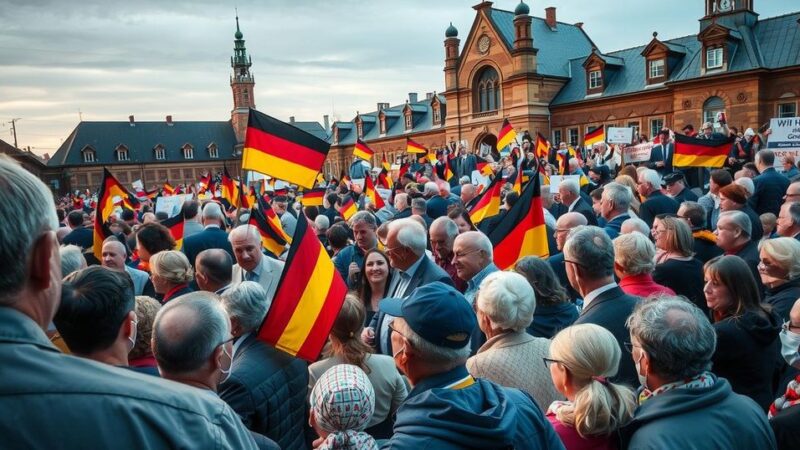German Chancellor Olaf Scholz lost a confidence vote on December 16, 2024, receiving only 207 votes in his favor, while 394 opposed him, necessitating early elections now scheduled for February 23, 2025. The vote comes after his coalition government collapsed following the dismissal of Finance Minister Christian Lindner, amid disputes on economic policy. This loss positions Scholz’s SPD party behind the CDU in polls and raises concerns about Germany’s economic future.
Chancellor Olaf Scholz of Germany faced a significant setback as he lost a confidence vote in the Bundestag, the lower house of parliament, on December 16, 2024. In this vote, only 207 out of 717 MPs supported him, while 394 expressed opposition and 116 abstained, leaving him significantly short of the 367 votes required to maintain his position in the 733-seat chamber. This result paves the way for early elections, now expected to be set for February 23, 2025.
The collapse of Chancellor Scholz’s coalition government, comprised of his Social Democrats (SPD), the Free Democrats (FDP), and the Greens, ensued following his contentious decision to dismiss Finance Minister Christian Lindner. Disagreements regarding strategies to revitalize Germany’s economy, the largest in Europe, were cited as key reasons for this breakdown. Subsequently, the FDP’s withdrawal left the SPD and the Greens without the necessary parliamentary majority.
To initiate early elections, a confidence vote was crucial, as per Germany’s constitutional regulations which prevent self-dissolution of the Bundestag. With Scholz anticipated to lose this vote, an election would soon determine the future political landscape for Germany. The president, Frank-Walter Steinmeier, has until January 6, 2025, to decide whether to dissolve parliament, following which elections are mandated to occur within 60 days.
Chancellor Scholz addressed MPs, emphasizing the significance of the upcoming election in determining national confidence and investment in the future. He stated, “Do we risk our cohesion and our prosperity by delaying long-overdue investments?” Meanwhile, opinion polls indicate that his SPD is trailing behind the CDU, led by Friedrich Merz. Furthermore, the far-right Alternative for Germany (AfD) shows a growing support base, despite facing opposition from other political factions.
Overall, Germany appears to be gearing up for a period of political uncertainty as it prepares for elections amid significant economic challenges.
The vote of no confidence in Chancellor Olaf Scholz highlights the ongoing instability in German politics, primarily rooted in his leadership of a three-party coalition that has struggled to address economic issues effectively. Scholz’s administration has faced increasing scrutiny, particularly regarding its handling of economic stagnation and investment policy. The dismissal of Finance Minister Christian Lindner over trust issues further exacerbated tensions within the coalition, leading to its collapse and culminating in the recent confidence vote. As a result, Germany’s electoral landscape is shifting, with significant implications for both domestic governance and economic policy in the near future.
Chancellor Olaf Scholz’s defeat in the confidence vote indicates a clear crisis in his leadership and the stability of his coalition government. With early elections now on the horizon, the political stakes are high as Germany grapples with significant economic challenges. The rapidly changing political dynamics, marked by competing parties and rising populism, will undoubtedly shape the future governance of Germany and its approach to pressing economic issues. Whether this election will provide solutions or usher in further political volatility remains to be seen.
Original Source: news.sky.com







